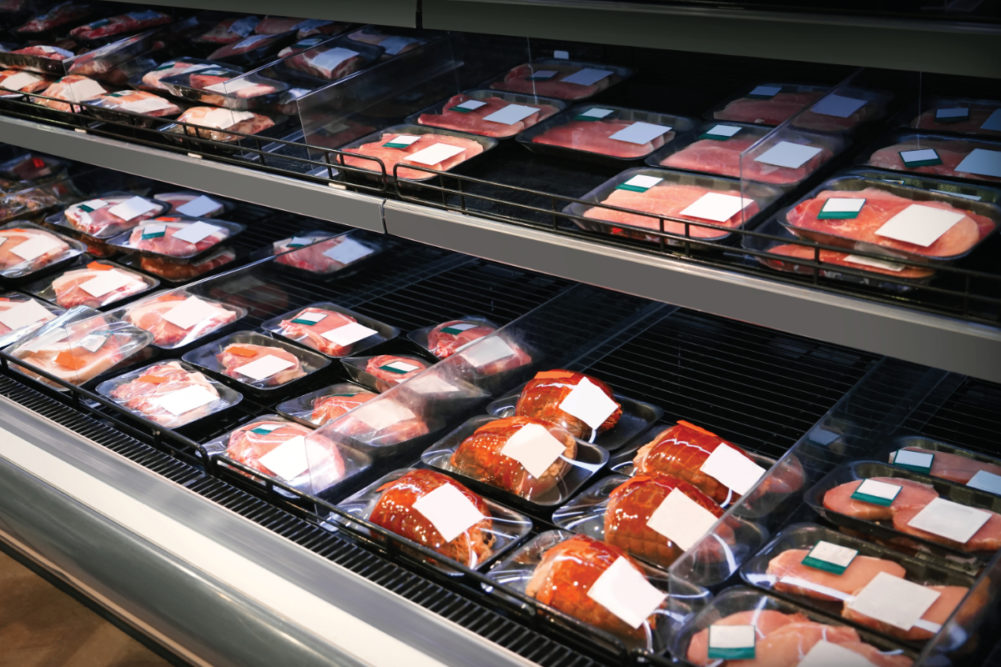Cooperation between the retailer and packer is nothing new. Partnership has long been necessary for efficient product delivery, effective merchandising and optimal supply chain operations. However, recent shifts in consumer behavior largely due to the pandemic have cracked open a plethora of opportunities for processors and retailers as they continue to navigate this new normal.
At Tyson Fresh Meats, we pride ourselves on being the Beef and Pork Experts. We also take pride in our extensive consumer research and retail support programs. While the industry may see somewhat of a return to “normal” in 2021, we’ve identified a few trends that will likely stick around for the foreseeable future:
- Shopping online: Over half of consumers we surveyed in September 2020 in conjunction with Midan Marketing have purchased meat online since the beginning of the pandemic, and one third say they plan to continue using an online service as their primary purchase method for protein in the future.
- Cooking at home: One quarter of consumers said they would eat at restaurants less often after the pandemic ends due to changes in financial situations or heightened health and safety concerns lingering post-pandemic.
- Seeking branded protein products: Shoppers still associate branded product with quality and consistency, and we’ve seen a preference for national brands return to near pre-pandemic levels.
- A desire for traceability: Now more than ever, shoppers want to know where their food comes from. Millennials and Gen Z are driving this change, and we expect this trend to continue as these groups increasingly become their households’ primary shoppers.
For these reasons and more, there has never been a better time for retailers to lean on processors for strategic marketing support.
Partnerships between processors and retailers have a synergistic effect that is worth more than the sum of their parts, solidifying marketplace equity that benefits both parties. Retailers can lean on a packer’s category and brand expertise to attract and retain shoppers; meanwhile, processors are keenly aware that brand choices are often made in-store and appreciate insight into how their product is positioned and marketed. And, if using a packer’s brand, retailers can utilize the brand’s resources and tools, such as social channels, websites and in-store materials like brochures and charts.
According to a 2016 survey by Label Insight, 94% of consumers said that it was important to them that brands and manufacturers are transparent about what’s in their food and how it’s made. According to the 2020 Power of Meat report, most consumers feel it’s important for both grocery stores and brands to provide transparency into how/where livestock was raised.
Our own research is consistent with this – we’ve seen a steady increase in 1) consumers placing increased importance on outside verification of animal welfare practices and 2) an increased emphasis on tracing the meat they buy back to the specific farm and often even the specific animal.
Because more consumers are interested in how their food is produced, and many are even following QR codes and links before and during shopping, retailers can use information provided by manufacturers that prioritize transparency to educate consumers and dispel myths regarding animal welfare. From point-of-sale materials to digital content to meat department trainings, each touchpoint is an opportunity to share brands’ stories and values with shoppers.
Other types of marketing support for retailers include:
- A personalized shopping experience - Once a luxury, personalization has become a necessity in today’s omnichannel shopping world. Retailers should be harnessing data collected about shoppers to personalize their experiences and offer customized conveniences.
- Loyalty programs - Retailers can go beyond points-based discounts to offer a loyalty experience tailored to their shopper demographics including discounts at neighboring businesses, dedicated customer service, or early access to new products. Processors can partner with retailers on product giveaways or other special promotions to help retain loyal shoppers.
- In-store and online support - Consumers are doing their research up until the moment they choose a product in the store, and packers can provide links to reputable information through on-pack or in-store QR codes. Consumers are also shopping online, regardless of digital savviness or age demographic. Online shoppers are also more likely to make repeat purchases — new data from Nielsen shows that nearly one third of shoppers found the order history tool most helpful when shopping online. To drive initial consideration, processers can provide valuable assets to boost the online shopping experience, such as high-quality photography and detailed descriptions of product attributes. Providing this information to information-hungry consumers not only drives sales and higher basket rings for the retailer, more importantly, it translates into store loyalty and trust from the consumer.
- POS marketing materials: Although omnichannel shopping is here to stay, in-store marketing opportunities should not be ignored. According to Raydiant’s 2021 State of Consumer Behavior Report, 46% of respondents prefer to shop in-person rather than online, given the choice. In-store marketing can increase awareness out-of-store by encouraging email signups or driving web traffic. Cross-merchandising products are an in-store opportunity to address meal-planning fatigue.
- Promotions: Sixty-two percent of shoppers say that promotions can drive them to try a brand they don’t normally purchase, so consider branded promotions to boost sales and encourage trial. Seasonal promotions in particular can elevate a shopper’s experience, engaging their senses, making shopping decisions easier and bringing joy in an otherwise stressful time.
In today’s crowded marketplace, retailers should seize every opportunity to capture shoppers’ attention. Today’s consumer is more discerning than ever before and demands more than convenience and safety. All of us in the industry have the same shared responsibility to work together to meet consumers’ needs and it’s in processors’ best interest to champion all of our partners up and down the supply chain.
Kent Harrison is vice president of marketing and premium programs for Tyson Fresh Meats, a division of Springdale, Ark.-based Tyson Foods.

